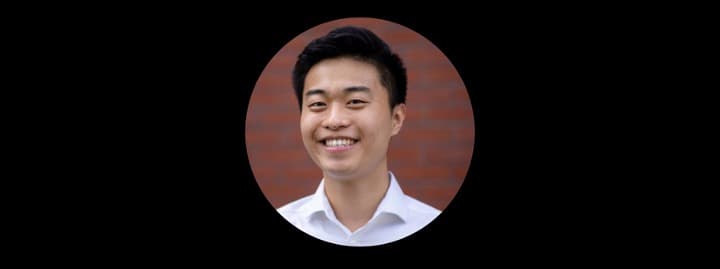
We asked in the middle of the project how our talents have experienced the first weeks working with us. Christian Lin from Harvard is currently designing novel approaches in a KPI Redefinition project as part of our One For Humanity campaign. Check out what Christian Lin has to say.
Tell shortly about yourself.
I'm a senior at Harvard studying Psychology and Economics and there are two reasons why I'm looking forward to our project. The first is because my background in organizational psychology has planted many questions about Key Performance Indicators and what helps organizations grow and succeed. Since working for a boutique consulting firm focused on changing the culture of work environments, I've come to appreciate and understand the importance of measurements outside of profit yet crucial for performance such as diversity and culture. Secondly, my research background at the Harvard Business School has introduced me to the importance of workplace satisfaction and unsurprisingly, employees are motivated by a lot more than just salaries. I'm a believer that socially responsible practices such as living wages, non-discriminatory practices and environmentally sustainable strategies can be aligned with annual financial targets. This doesn't mean it will come naturally or easily, so I'm excited to have the opportunity to take a stab at this question to see what that may look like.
At the organizational and individual level, there is so much to explore on redefining key performance indicators and although I'm quite frankly uncertain about the solution to this question, Some skills that I'm happy to offer and hone throughout this process is data handling (scraping, storing and analyzing), synthesizing research reports and offering a psychology-oriented perspective to answer the challenge of rethink business metrics to reflect social progress and externalities.
How have you experienced Demola process so far?
Demola has been an incredibly novel and eye-opening experience so far. We're in a team of 6 and everyone is cooperating to not only think of solutions to our topic but also define the question that we want to tackle. For this reason it's challenging and stimulating at the same time. I joined my topic, Redefining Key Performance Indicators, precisely because I wanted to spend time learning about the current metric that we use to measure success in our economic system and my team environment pushes me to think about what's missing, what can be improved on and how do we implement this so that it's more than just a fleeting thought.
How do you see, what is the impact on these types of projects where there are creative minds around the world building various future scenarios?
Everything starts with an idea, and sometimes it's not feasible for people in power to think of an alternative to the status quo when the status quo is all that we've ever known. There is a space and need for these forward thinking innovation challenges because if we don't spend time considering alternatives, we may be stuck with a strategy of the past that may be completely unsustainable in the future. Regardless of our final product, whether it's practical or idealistic, feasible or expensive, this is a case where the thought matters a lot because new technology, governments and societal norms require our leaders and corporations to adjust their models and rethink what success means in this generation.
Could you share some interesting/surprising learning/insight you have encountered during this project work.
There's a model that Amsterdam currently has implemented that champions the spirit of taking responsibility for the negative externalities that their economic growth has exported to other parts of the world. In response to pollution, exploited labor and unsustainable materials from outside their border, they've implemented a donut model that imposes an environmental ceiling to their economic activity, but staying within a healthy range of GDP growth. It's essentially taking a stand against growing beyond sufficiency at the expense of other countries that fail to even meet basic economic needs. This cooperation between governments, businesses and non-profits reflects the desires of consumers, employees and international bodies. This seems like a very forward thinking experiment that we can extract lessons from when thinking about the future of commerce.
Any other message you would like to share for students who consider applying Demola projects?
The reason why Demola is one of the neatest experiences I've been a part of this year is because of how global my team is. I have teammates from Germany, Japan, Finland and the US. It's really special for me to work and experience different ways of thought in collaborating and approaching a problem. I'm learning a lot from my peers week by week and it's only expanded my worldview. Any student willing to learn more about a topic they care about in an actionable way with like-minded teammates all over the world should seriously consider this fun 6-week project.
Christian Lin
http://linkedin.com/in/christian-lin
Share this event with anyone you think would be interested.